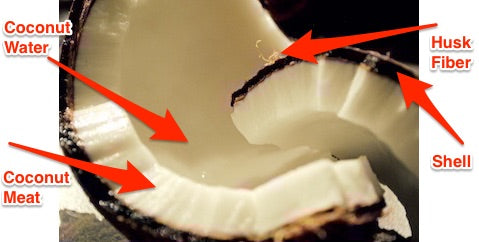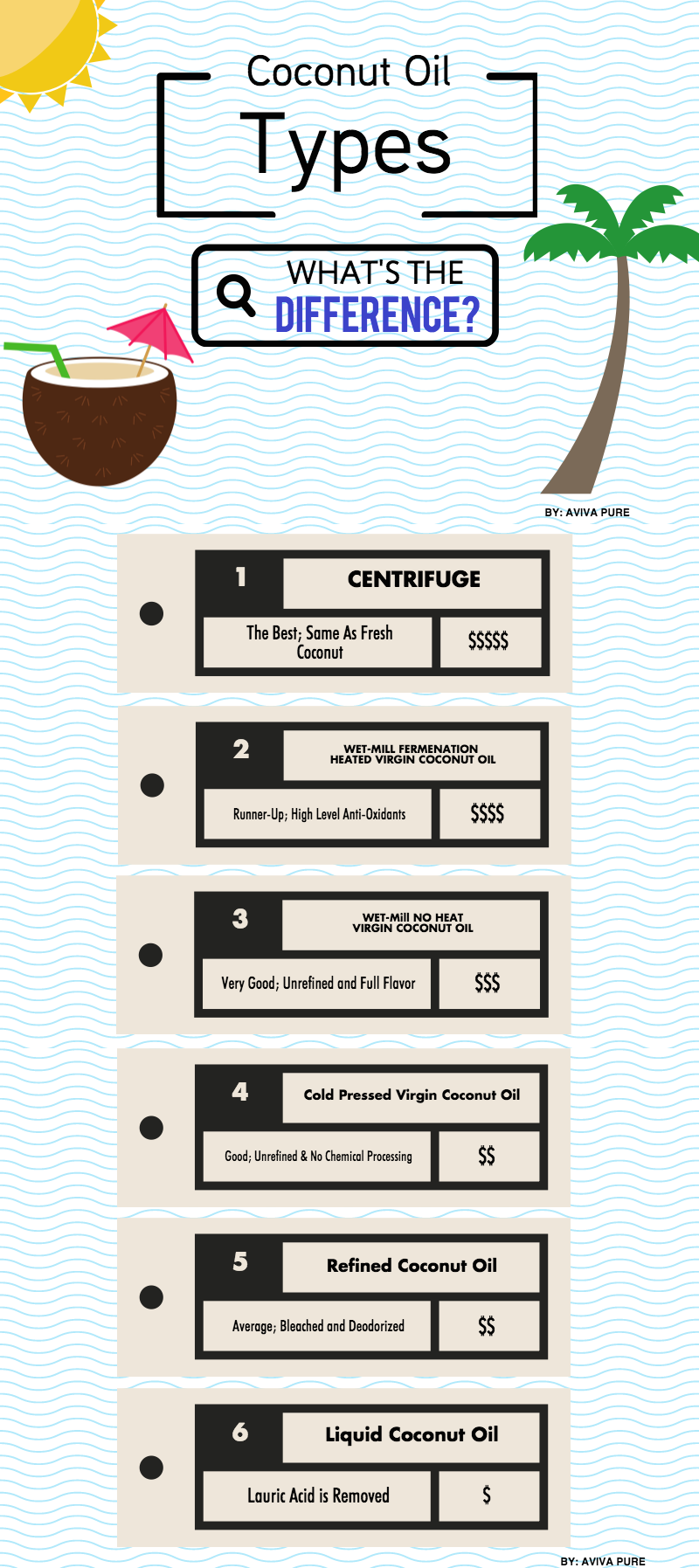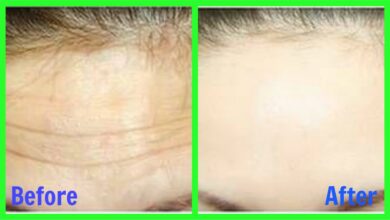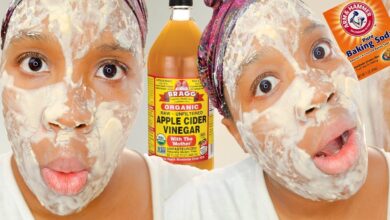Coconut Oil Benefits_ The Expert’s Extraordinary Guide
We have already discussed where coconut trees are found.
Now, will discuss how the coconut oil is made and identify the best types of coconut oil for you.
Let’s begin.
6-12 months after the flower begins to form a seed, the coconut’s are picked from the trees. The timing depends on when the buyer prefers their coconut’ to be harvested (mature vs medium aged coconut).
After the coconut’s are picked from the trees, the next step is to decide on whether the coconut oil will be considered unrefined (virgin) or refined.
2 Main Categories – Virgin Coconut Oil vs Refined Coconut Oil
You probably have heard of hundreds of terms used with coconut oil – virgin, organic, refined, cold pressed, expeller, raw, extra virgin, centrifuge..etc.
Let’s start by breaking these terms down and clarifying the types of coconut oils.
Once the meat of the coconut oil is separated from the shell and husk, it can either be left fresh, or dried via the sun, kiln or by smoking.

If dried, it is referred to as “Copra.”
So, the main difference between virgin (unrefined) coconut oil and refined coconut oil is whether they start with fresh coconut meat, or dried “copra”.
1) Refined Coconut Oil:
Refined coconut oil starts from dried copra and is typically referred to as “RBD” coconut oil: Refined, Bleached, Deodorized. The bleach is not generally a chemical process, but a filter process using clay to remove impurities. Also, during this process, any taste and odor are essentially removed from the oil.
Refined coconut oil starts from dried copra and is typically referred to as “RBD” coconut oil: Refined, Bleached, Deodorized. The bleach is not generally a chemical process, but a filter process using clay to remove impurities. Also, during this process, any taste and odor are essentially removed from the oil.
Well, since the coconut oil is refined, bleached and deodorized this makes it harmful, right?
Not exactly. The refining process leaves the coconut oil’s fatty acid profile the same as it was originally found in the coconut. However, the refining process does strip away some of the nutrients and anti-oxidants compared to virgin coconut oil, but still not enough for the RBD to be considered unhealthy.

Expeller Pressed Coconut Oil
Expeller pressed coconut oil represents the majority of coconut oil produced in the world.
When buying a coconut oil, if the plain term “coconut oil” is used without referencing whether it is unrefined, chances are it is an RBD (expeller pressed) coconut oil. This is often the case among many cheaper, mass quantity produced coconut oils.
While these coconut oils are typically irritating when used directly on your skin and hair, they are preferred when cooking because due to their higher smoking point (450°F) compared to virgin coconut oils (350°F).
Liquid Coconut Oil
Also known as MCT Oil, or “fractionated” coconut oil. This coconut oil undergoes a process where all of it’s lauric acid is removed. Liquid coconut oil is made up of medium chain triglycerides. These fatty acids bypass regular digestion and are absorbed right away and taken to the liver. These are typically used for weight loss and energy for endurance activities.
2) Virgin (Unrefined) Coconut Oil:
You just learned that refined coconut oil’s originate from “copra.”
Therefore, a “virgin” coconut oil would be coconut oil produced without dried copra as its starting point. It is considered to be “unrefined.”
Here’s a picture of Fresh Coconut Meat via Making Healthy Choices

With Virgin Coconut Oil, the coconut milk is extracted from the wet coconut meat using the “wet-milling” process. The oil is then separated from the water of the coconut milk. The next step is used to differentiate many of the premium coconut oil’s found on the market today:
Centrifuge Coconut Oil
Centrifuge extracted coconut oil is made by pressing fresh, coconut meat to obtain coconut milk. The water and oil are separated from the coconut by centrifuge force, without using any heat. Centrifuge coconut oil is considered raw and retains its full nutritional profile of that a freshly picked coconut. The result is a light, coconut flavor. It is considered to be the highest quality of coconut oilbut the most expensive to produce.
Cold Pressed Coconut Oil
Also referred to as “raw” coconut oil. The cold pressed coconut oils are expeller pressed in a heat-controlled environment, with temperatures not exceeding 120°F. The amount of heat can vary significantly with cold pressed coconut oils. This is a reason why you will have a great variation in quality and taste among cold pressed oils. These can have a stronger, coconut flavor and aroma.
However, it’s important to note that many cold pressed oils are marketed as “no heat” in order to position themselves in the market as a premium coconut oil with no heat being used that could be detrimental to the nutrients and minerals found in coconut oil. According to a study that tested anti-oxidants in coconuts, the study found that heat extracted virgin coconut oil to have up to 25% more anti-oxidants than “raw”, and “cold-pressed” coconut oil.
Organic Coconut Oil
Organic versus non-organic coconut oil means that the coconuts and coconut trees were grown without the use of pesticides. Looks for brands that are able to provide a “USDA Organic” certification. Although, there some brands where the coconut oil could be considered to have been grown organically but has not gone through the organic verification process.
Extra Virgin
Many companies will often market their coconut oil as “extra virgin”, trying to differentiate their self from other “virgin” coconut oils.
What’s the difference?
None.
Because a large portion of mass produced coconut oil’s fall under the same extraction process, using “extra” virgin is a way for brands to position themselves in a crowded market. Do not fall into the trap of believing their “extra” virgin coconut oil is special.
Coconut Oil Benefits for Skin and Hair
open next page to continue reading….




